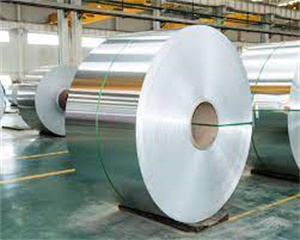What can I use aluminum coil instead of copper coil?
In the world of heat transfer and electrical conductivity, copper has long been the reigning champion. However, a challenger has emerged on the scene – aluminum. The use of aluminum coils as an alternative to traditional copper coils is gaining traction across various industries. In this blog post, we will explore the reasons behind this shift and the applications where aluminum coils can be a viable substitute for copper.
Weight Advantage:
One of the primary reasons for considering aluminum over copper is its significantly lower density. Aluminum is much lighter than copper, making it an ideal choice in applications where weight is a crucial factor. Industries such as automotive and aerospace are increasingly turning to aluminum coils to reduce overall vehicle weight, thereby improving fuel efficiency.
Corrosion Resistance:
Aluminum possesses excellent corrosion resistance properties, especially when compared to copper. This makes aluminum coils a preferred choice in environments where exposure to moisture and corrosive elements is a concern. HVAC systems and coastal applications, for instance, can benefit from the corrosion-resistant nature of aluminum.
Cost-Efficiency:
Aluminum is more abundant and less expensive than copper, which makes it a cost-effective alternative in various applications. Industries looking to optimize production costs without compromising performance are exploring aluminum coils as a viable solution. This is particularly relevant in large-scale manufacturing processes where cost efficiency plays a pivotal role.
Thermal Conductivity:
While copper is renowned for its high thermal conductivity, aluminum is no slouch in this department either. Aluminum has approximately 60% of the thermal conductivity of copper, making it a suitable choice in applications where a slightly lower thermal performance is acceptable. Heat exchangers, for example, can benefit from the balance between performance and cost that aluminum offers.
Ease of Fabrication:
Aluminum is known for its malleability and ease of fabrication. It can be easily formed into intricate shapes, making it adaptable to a variety of design requirements. This characteristic is particularly advantageous in industries like construction and automotive, where complex shapes and sizes may be necessary for optimal performance.
Environmental Considerations:
As sustainability becomes a key focus across industries, the environmental impact of materials used in manufacturing processes is gaining attention. Aluminum is highly recyclable, and the recycling process requires significantly less energy compared to copper. This eco-friendly aspect makes aluminum a compelling choice for companies committed to reducing their carbon footprint.
Conclusion
While copper has long been the go-to material for coils in various applications, aluminum is emerging as a worthy alternative. The decision to use aluminum coils instead of copper coils depends on specific requirements such as weight, corrosion resistance, cost, thermal conductivity, ease of fabrication, and environmental considerations. As industries continue to seek innovative solutions, the versatility of aluminum coils is likely to play a significant role in shaping the future of heat transfer and electrical applications.
